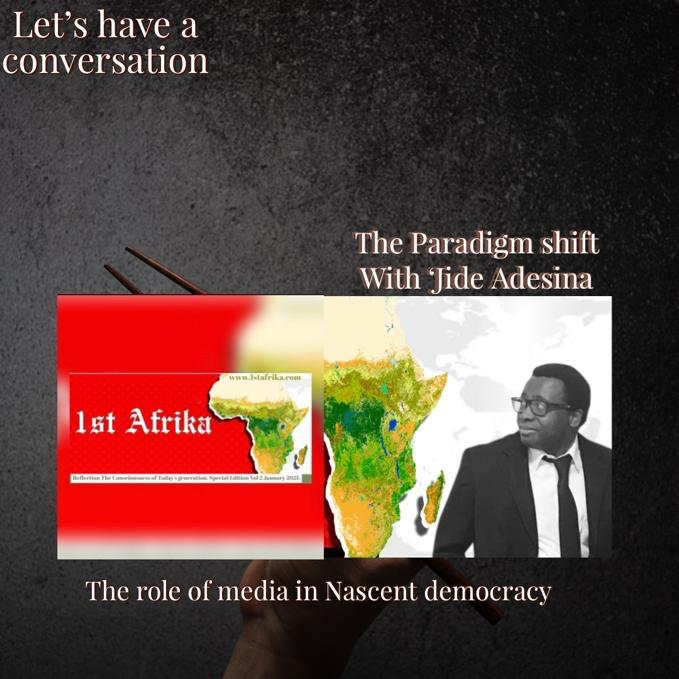
In recent years, social media has become a powerful tool for political activism in Kenya. Faced with corruption, economic inequality, and governmental inefficiency, Kenyans have turned to platforms like Twitter, Facebook, and WhatsApp to voice their discontent and mobilize for change. This digital activism has given rise to significant movements and has played a critical role in shaping public discourse and holding the political class accountable.
The Rise of Digital Activism
Social media platforms have democratized the ability to disseminate information and mobilize people. In Kenya, this has translated into a vibrant digital activism landscape where citizens can bypass traditional media constraints and directly challenge the political status quo. Key movements and events illustrate how Kenyans are leveraging social media for political protest.

Key Social Media Campaigns and Movements
(Kenyans on Twitter)*: One of the most influential social media collectives in Kenya is #KOT. This loosely organized group of Kenyan Twitter users has been instrumental in highlighting issues ranging from corruption scandals to human rights abuses. For instance, #KOT played a significant role in drawing international attention to the Garissa University College attack in 2015 by trending the hashtag #147IsNotJustANumber, which commemorated the victims.
#SwitchOffKPLC*: This campaign targeted the Kenya Power and Lighting Company (KPLC) for alleged corruption and inefficiency leading to frequent power outages and inflated electricity bills. The movement garnered widespread support on Twitter, with users sharing their grievances and pushing for reforms in the energy sector.
#BeyondZeroCorruption*: Initiated by activist Boniface Mwangi, this campaign aimed to raise awareness about the pervasive corruption in Kenya. The hashtag #BeyondZeroCorruption was a call to action for citizens to demand accountability from their leaders. Mwangi’s use of graphic art and compelling storytelling on social media helped the campaign gain traction and engage a broad audience.
#SabaSabaMarchForOurLives*: Named after the historic Saba Saba Day, which commemorates the pro-democracy protests of 1990, this movement organized protests against police brutality and government repression. Social media was used extensively to organize marches, share live updates, and amplify the voices of those affected by state violence.
Social Media as a Tool for Mobilization and Awareness
Social media has proven effective for several reasons:
Real-Time Information Sharing: Platforms like Twitter and Facebook enable real-time dissemination of information, making it easier to organize protests and share updates with a broad audience. During the #SabaSabaMarchForOurLives, activists used social media to coordinate meeting points, share live streams, and document instances of police violence.
Amplifying Marginalized Voices: Social media allows marginalized communities to voice their concerns and experiences without the filters of mainstream media. This has been crucial in highlighting issues that might otherwise be overlooked or underreported.
Creating a Sense of Solidarity: Hashtags and viral posts help create a sense of community and solidarity among protestors. The shared online space allows individuals to feel part of a larger movement, which can be empowering and motivating.
Pressure on Political Leaders: Social media campaigns can apply significant pressure on political leaders and institutions by attracting national and international attention. When a campaign gains momentum online, it often forces the traditional media to cover the issue, thereby increasing its visibility and impact.
Challenges and Limitations
Despite its strengths, social media activism in Kenya faces several challenges:
Government Surveillance and Censorship: The Kenyan government has been known to monitor and sometimes censor social media activity. During periods of political unrest, internet shutdowns and social media blackouts have been used to stifle dissent and control the flow of information.
Misinformation and Fake News: The rapid spread of misinformation on social media can undermine the credibility of genuine movements. Activists must constantly combat false information and ensure that their campaigns remain fact-based and trustworthy.
Digital Divide: Not all Kenyans have equal access to the internet or digital literacy skills. This digital divide can limit the reach and inclusivity of social media campaigns, particularly in rural areas where internet penetration is lower.
Case Study: #EndPoliceBrutalityKE
The #EndPoliceBrutalityKE movement provides a clear example of how social media can be used to protest against state violence. Following numerous reports of police brutality during the enforcement of COVID-19 curfews, Kenyans took to social media to document abuses and demand justice. The movement quickly gained traction, with activists organizing online campaigns, sharing video evidence of police misconduct, and pressuring authorities to take action.
The hashtag trended for several weeks, drawing attention from both local and international media. This heightened scrutiny led to public statements from government officials and, in some cases, disciplinary action against offending officers. The movement also sparked a broader conversation about police reform and accountability in Kenya.
Social media has become an indispensable tool for political activism in Kenya. It has enabled citizens to organize, mobilize, and hold their leaders accountable in ways that were previously impossible. While challenges remain, the continued use of social media for political protest reflects a growing digital literacy and an unyielding demand for justice and good governance. As Kenya’s digital landscape evolves, so too will the strategies and impact of its online activists, ensuring that the voices of the people remain heard in the corridors of power.


